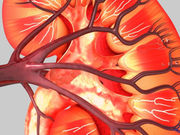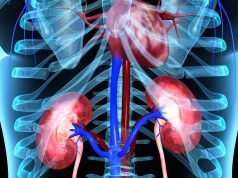Holiday or weekend procurement, shorter donor stature, location of procurement tied to later acceptance
MONDAY, Aug. 7, 2017 (HealthDay News) — Characteristics unrelated to allograft quality are associated with later acceptance in the deceased donor kidney match-run, including holiday or weekend procurement and shorter donor stature, according to a study published online July 31 in the American Journal of Transplantation.
Jordana B. Cohen, M.D., from the University of Pennsylvania in Philadelphia, and colleagues conducted a retrospective cohort study involving 47,563 deceased donor kidney match-runs from 2007 to 2013.
The researchers observed independent associations for several characteristics unrelated to allograft quality with later acceptance in the match-run: Public Health Service increased-risk donor status (adjusted odds ratio [aOR], 2.49; 95 percent confidence interval [CI], 2.29 to 2.69), holiday or weekend procurement (aOR, 1.11; 95 percent CI, 1.07 to 1.16), shorter donor stature (aOR, 1.53 for <150 cm versus reference >180 cm; 95 percent CI, 1.28 to 1.94), and procurement in an area with higher intensity of market competition and with the longest waiting times (aORs, 1.71 [95 percent CI, 1.62 to 1.78] and 1.41 [95 percent CI, 1.34 to 1.49], respectively). There was a correlation for later acceptance in the match-run with delayed graft function, but not with all-cause graft failure (adjusted hazard ratio, 1.01; 95 percent CI, 0.96 to 1.07).
“Interventions are needed to reduce turndowns of viable organs, especially when decisions are driven by infectious risk, weekend or holiday procurement, geography, or other donor characteristics unrelated to allograft quality,” the authors write.
Copyright © 2017 HealthDay. All rights reserved.








